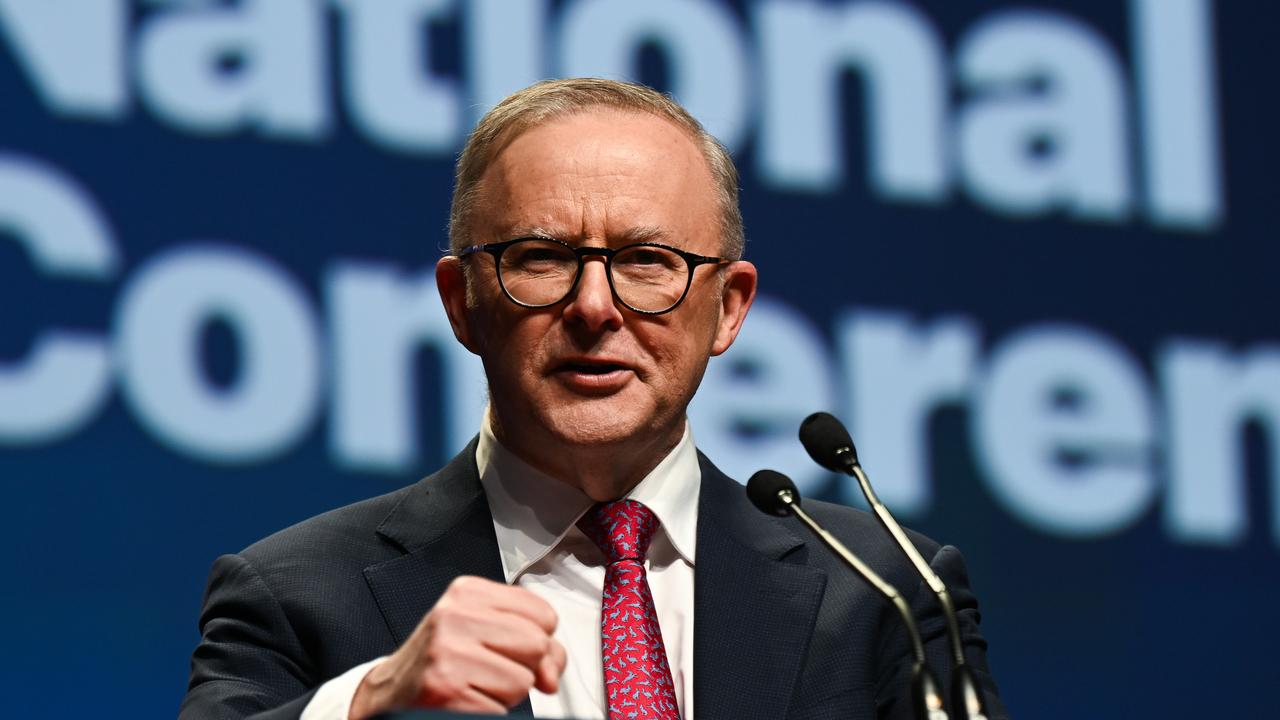Prime Minister Anthony Albanese has a lot to worry about, but the threat of global inflationary pressures are keeping him at night, he has revealed.
As the Reserve Bank wrestles to keep domestic inflation under control, the PM told a breakfast in Perth that the international outlook on price pressures, which flowed through to the local economy, risked exacerbating the cost of living crunch and exacerbating inequality.
“Inflation has a greater impact on inequality as well, and we understand those cost of living pressures,” the Prime Minister told the West Australian’s ‘Leadership Matters’ breakfast.
The PM’s revelation follows a meeting of central bankers from across the world in Jackson Hole, Wyoming, where officials and economists shared their ongoing angst that global upheaval may have ushered in a new era of economic uncertainty.
Speaking at the Federal Reserve’s annual economic symposium last week, the Fed’s chairman, Jerome Powell, cautioned that the bank was resolute in its determination to quell inflation and would continue to raise rates to rein in persistent price pressures.
“Although inflation has moved down from its peak – a welcome development – it remains too high,” Mr Powell said.
“We are prepared to raise rates further if appropriate, and intend to hold policy at a restrictive level until we are confident that inflation is moving sustainably down toward our objective.”
In a warning to financial markets, Mr Powell said that the key to returning inflation sustainably to target was to convince consumers that price pressures would not resurge again.
“Doing too little could allow above-target inflation to become entrenched and ultimately require monetary policy to wring more persistent inflation from the economy at a high cost to employment,” Mr Powell added.
Also speaking at Jackson Hole, Europe’s most powerful central banker, European Central Bank president Christine Lagarde, shared Mr Powell’s determination to return inflation to target.
“The fight against inflation is not yet won,” Ms Lagarde said.
Left unchecked, international price pressures risk resurging and subsequently flowing through to the Australian economy.
But not all central banks are battling with stickier price pressures.
Bank of Japan (BOJ) governor Kazuo Ueda said price pressures in his country had been slower to rise than the bank wanted, and it would continue with its ultra-loose monetary policy strategy. The BOJ’s benchmark interest rate currently sits at -0.10 per cent.
“We think underlying inflation is still a bit below our target of 2 per cent,” Mr Ueda told an audience at Jackson Hole.
Facing a nightmare scenario of soaring unemployment, and an explosion in debt in its property and financial sectors, China – Australia’s largest trading partner – is now combating a bout of deflation.
In July, the International Monetary Fund released its latest World Economic Outlook, which forecast global inflation to remain firmly above central bank targets for some time.
The IMF expects that global inflation will decline to 6.8 per cent by the end of 2023, down from 8.7 per cent in 2022. By the end of 2024, global headline inflation will still be high, only easing to 5.2 per cent.
With the Reserve Bank set to meet next week, in what will be outgoing governor Philip Lowe’s final meeting, the central bank will be closely following international economic indicators.
Bar any surprise jump in the monthly inflation indicator released on Wednesday, any move to raise the official cash rate above 4.10 per cent remains unlikely.
